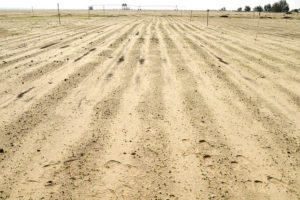World Leaders Urged to Kick Killer Coal Habit
An Oxfam report says all coal-fired power plants in the G7 group of countries should be phased out to save lives, money and the planet.
By Paul Brown, Climate News Network

The Niederaussem power plant in Germany is high on Europe’s “Dirty 30” list of CO2 emitters. (Henning Mühlinghaus via Flickr)
This Creative Commons-licensed piece first appeared at Climate News Network.
LONDON — Leaders of G7 countries at this weekend’s summit in Germany are being called on today to show leadership by pledging to end all coal burning for electricity generation in the industrialised world.
“Let Them Eat Coal”, a report by the international relief charity Oxfam, explains how it can be achieved without financial difficulty, and warns that continuing to burn coal will kill millions because of the food shortages that climate change will cause.
The report is endorsed by a group of scientists, politicians, industrialists, trade unionists and campaigners, who say that only with political leadership from G7 can the prospects of dangerous climate change be averted.
Weapon of destruction
It points out: “Each coal power station can be seen as a weapon of climate destruction — fuelling ruinous weather patterns, devastating harvests, driving food price rises and ultimately leaving more people facing hunger. With these climate impacts falling disproportionately on the most vulnerable and least food-secure people, the burning of coal is further exacerbating inequality.”
It points out that G7 coal plants emit twice as much fossil fuel carbon dioxide emissions as the whole of Africa, and that “rich industrialised countries must stop hiding behind countries like China and take the lead in kicking their own coal habit”.
Coal provides 41% of the world’s electrical power but 72% of power-sector emissions. The report details how it is now cheaper to invest in and produce electricity with renewables than in coal plants in G7 countries.
The report details how many ageing coal plants each G7 country still operates, and how the wealthiest countries of the world can switch to alternatives, while creating jobs and without losing money.
“This is not a pipe dream — it is a clear
political opportunity that G7 governments
can and must seize.”
Few of the G7 countries have built new coal plants, so closing them down would not lose capital investment. Ironically, Germany, which sees itself as a world leader in renewables and is the G7 host, has opened massive new coal-burning plants and will take longest to phase out coal unless it is prepared to lose money.
The report concludes that, without financial loss, France could phase out coal by 2020, the UK by 2023, and Italy by the mid-2020s. Canada and the US could follow by 2030, Japan by 2035, and Germany by 2040.
Apart from Germany and Japan, which have invested heavily in new coal plants, all G7 countries have an ageing fleet in which the original investment has long been repaid. For example, the average age of coal plants in the US is 45, and in the UK it is 41. Even in Germany and Japan, most coal plants are of the same vintage.
The report warns: “Coal power plants are the biggest obstacle standing between us and the internationally-agreed target to limit warming to 2 degrees [Centigrade].
Clean technologies
“G7 leaders meeting in 2015 can signal the beginning of the end of the coal era. By doing so, they can establish new momentum towards this year’s crucial UN climate talks in Paris and create thousands of new jobs in the clean technologies of the future.
“As the country-specific coal exit plans outlined in this paper make clear, this is not a pipe dream — it is a clear political opportunity that G7 governments can and must seize.”
Among those endorsing the report is Professor Olivier De Schutter, co-chair of the International Panel of Experts on Sustainable Food Systems. He said coal-fired stations “increasingly look like weapons of destruction aimed at those who suffer the impacts of changing rainfall patterns as well as of extreme weather events. Getting rid of our addiction to coal is both possible and necessary.”
Dr Michael Grubb, senior research fellow at the Cambridge University Centre for Climate Change Mitigation Research, said: “The extraordinary irony is that study after study is showing that coal is bad for G7 economies. The damages associated with extracting and burning coal outweigh any apparent economic value — before even considering its impact on climate change.”
Your support matters…Independent journalism is under threat and overshadowed by heavily funded mainstream media.
You can help level the playing field. Become a member.
Your tax-deductible contribution keeps us digging beneath the headlines to give you thought-provoking, investigative reporting and analysis that unearths what's really happening- without compromise.
Give today to support our courageous, independent journalists.






You need to be a supporter to comment.
There are currently no responses to this article.
Be the first to respond.